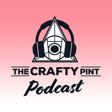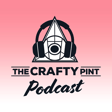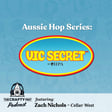
Philter's Award-Winning Potion
"In this game, you have to all believe in what you're trying to achieve.”
While no strangers to awards success, it’s fair to say the team at Philter enjoyed a night to remember at the 2025 Australian International Beer Awards, taking home four major trophies.
After a brief yet raucous chat with them on the night, we reconvened two weeks later for a more relaxed and wide-ranging catch-up with co-founders Mick Neil and Stef Constantoulas – mates who met when they moved in to the same Marrickville street a few years before launching their brewing company.
As well as reflecting on the impact of their recent success, they take us back to their pre-Philter days in the worlds of surfing gear and big beer, their first meetings with Sam Füss – the brewer behind many of their killer recipes we spoke to at her new home in Bali last year, the values driving the brand, the ongoing evolution of their multi-faceted venue, and their plans for the future.
The conversation touches upon many wider issues facing the beer and hospitality worlds too, from price pressures and market access to the need to keep fighting to bring consumers into the world of local, indie beer.
This week’s show features the debut of another mini-series supported by Mogwai Labs. Breaking Down Beer Styles kicks off with a look at dry Irish stouts for which Mogwai founder Josh Allen joined by Jared Palu and Lincoln Gibbs from Felons.
In the intro, Will and James reflect on Gage Roads turning 20 this week, as well as on the closure after 17 years of Seven Sheds in Tasmania. Look out for an upcoming episode featuring that brewery’s founders: beer writer Willie Simpson and partner Catherine Stark.
In the week they celebrate the launch of their brewery, Will also puts Barbarian Brewing Co in Melbourne’s west forward as a potential Bluestone Yeast Brewery of the Month; read about them via the link below.
Start of segments:
- 13:47 – Philter Part 1
- 40:00 – Breaking Down Beer Styles with Mogwai Labs
- 51:12 – Philter Part 2
Relevant links:
- Australian International Beer Awards 2025
- Philter Brewing
- Building A Brewery In Bali ft Sam Füss
- Gage Roads at 20
- Mogwai Labs
- Barbarian Brewing Co
- Nominate a Brewery of the Month
- Nominate a Good Beer Citizen
- Midlands Insurance
To find out more about featuring on The Crafty Pint Podcast or otherwise partnering with The Crafty Pint, contact craig@craftypint.com.


